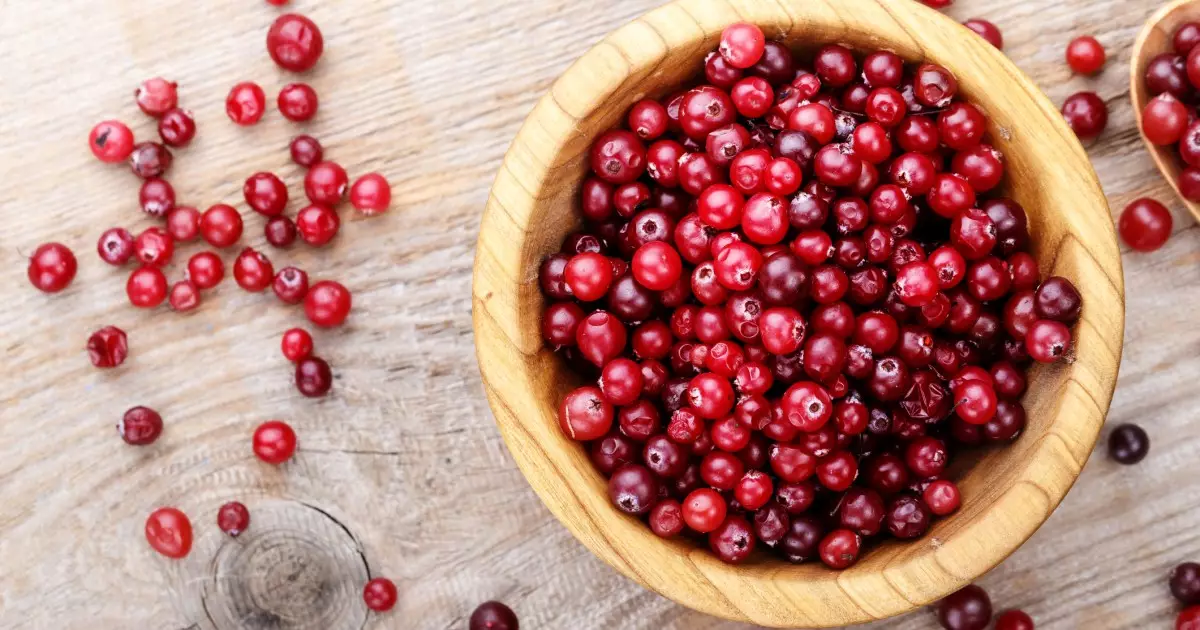Cranberries are a popular culinary highlight during the holiday season, often gracing tables at Thanksgiving and Christmas dinners. But as pet owners prepare festive feasts, they may wonder: can dogs join in on the cranberry festivities? The straightforward answer is yes; dogs can safely consume cranberries. However, it is crucial to understand how to serve these vibrant fruits to ensure that they contribute positively to a dog’s health without introducing risks.
Cranberries are packed with essential nutrients that can be beneficial for dogs. These little berries are rich in vitamin C, potassium, and dietary fiber, playing a vital role in maintaining a healthy digestive system. Fiber contributes to regular bowel movements and helps dogs feel fuller, which can mitigate begging during meal times. In addition to these nutrients, cranberries contain vitamins E, K, as well as B1 and B2, along with important minerals like manganese and copper.
Perhaps one of the most significant attributes of cranberries is their anti-inflammatory properties. The high levels of quercetin found in cranberries can be particularly beneficial for pets suffering from joint pain or inflammation. For dogs with specific health issues, such as kidney concerns, cranberries may offer some relief due to their high levels of proanthocyanidins (PACs). Furthermore, regular consumption of cranberries might help improve bladder health, reduce plaque buildup on teeth, and decrease the risk of gastrointestinal diseases.
While cranberries are generally safe, moderation is essential. Just because a food is safe does not mean it should be consumed in large quantities. Overindulgence in cranberries can lead to health complications for dogs. Additionally, it’s essential to only offer raw or minimally processed cranberries without added ingredients like sugars or preservatives. These added ingredients can potentially harm dogs, causing digestive upset or other health issues.
For pet owners considering serving cranberries, a cautious approach is advised. It is best to consult a veterinarian before introducing new foods into a dog’s diet, especially for pets with pre-existing health conditions. Improper handling of cranberries or giving too large a portion can introduce unintended risks.
Despite the potential health benefits, certain cranberry products can pose dangers to dogs. For instance, owners should avoid giving their dogs cranberry sauces, juices, or dried cranberries with added sugars, such as “craisins”. These processed versions often contain ingredients that can negatively impact a dog’s health, like increased sugar levels, leading to issues such as pancreatitis.
Veterinary experts reinforce the notion that cranberries should not be regarded as a miracle solution for treating conditions like urinary tract infections (UTIs). Dr. Marie Haynes, a veterinarian, cautions against the misconception that cranberries can cure UTIs, explaining that while they prevent certain bacteria from latching onto the bladder wall, they are not effective against all types of urinary infections. Therefore, while cranberries can be a healthy treat, they should not be relied upon as a substitute for proper medical treatment.
Given that raw and cooked cranberries can be a safe treat for dogs, there are several creative and healthy ways to incorporate them into a pet’s diet. For a unique twist, pet owners can make simple cranberry shortbread treats customized for their furry friends. This not only ensures that the treat is healthy but also within safe serving sizes without harmful additives.
To enhance your dog’s mealtime experience, mixing a few cranberries into their regular dog food can add a delightful burst of flavor and nutrients. Always ensure the cranberry offering is limited to avoid any potential health implications from excess consumption.
Moreover, numerous pre-made dog treats on the market are formulated with cranberries, providing a convenient and safe option for pet owners who may not have the time or resources to create homemade versions. These specially crafted treats typically contain ingredients formulated to support a dog’s health, allowing owners to provide their pets with flavorful snacks without the risk.
Cranberries can be a safe and nutritious addition to a dog’s diet, but pet owners must exercise moderation and caution in serving these fruits. By focusing on raw or lightly cooked cranberries and avoiding processed versions laden with harmful additives, dogs can enjoy the delightful taste and health benefits of cranberries without adverse effects. As always, maintaining an open line of communication with a veterinarian about diet changes is the best approach to ensure a pet’s health and well-being.

